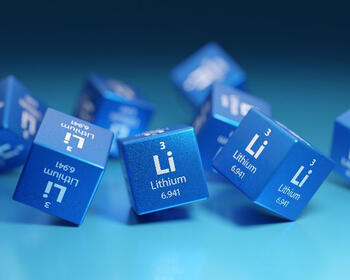
There are a couple of dark clouds hanging over the optimistic growth of electric vehicles (EV’s) that may decimate the supply chain of lithium to make the EV batteries, and how to safely transport EV’s across wide oceans:
The European Chemicals Agency (ECHA) is expected to classify lithium carbonate, chloride, and hydroxide as dangerous for human health. The decision is expected to be reached by early next year.
The recent (March 2022) sinking of a cargo ship with 4,000 vehicles, from a fire where electric-vehicle batteries were part of the reason, may be imposing an insurmountable insurance problem to bring those foreign made vehicles to America
The first dark cloud is the supply chain for lithium to build EV batteries:
Lithium’s pivotal role in electric vehicles makes it an important commodity in meeting global targets to cut carbon emissions, and it was added to the EU’s list of critical raw materials in 2020. However, the European Commission is currently assessing a proposal by the European Chemicals Agency (ECHA) to classify lithium carbonate, chloride, and hydroxide as dangerous for human health.
The EU proposal doesn’t ban lithium imports, from developing countries where the same lithium carbonate, chloride and hydroxide are currently NOT categorized as dangerous for human health. But if legislated will add to costs for processors from more stringent rules controlling processing, packaging, and storage. The decision is expected to be reached by early next year
Adding lithium salts to the list of materials hazardous for health may prompt the revision of a range of projects in the industry. Stricter rules mean higher costs, so any lithium ore processing plant project would need to be given a second look regarding its environmental impact and feasibility.
If lithium carbonate, lithium chloride and lithium hydroxide are classified as dangerous, it would complicate the import procedure, production, and handling of the materials.
The top lithium producer in Germany, Albemarle Corp (ALB.N), may have to shut its Langelsheim plant in Germany if the metal used in electric vehicle batteries is declared a hazardous material by the European Union..
Like America’s Environmental Protection Agency (EPA), the European Union has been making its environmental and climate rules stricter for decades. The administration in Brussels wants to make the entire continent carbon neutral by mid-century. At the same time, it is striving to achieve the highest level of protection from pollution in the world.
Initiatives to open mines and ore processing plants such as the ones in Serbia and Portugal have caused a public uproar as environmentalists and the local population are fearful about the impact on nature and people’s livelihoods. In other projects, engineers are trying to make the extraction of lithium from geothermal waters cost effective and harmless, without any mining. Currently, Portugal has called off a lithium project amid EU’s scramble for battery materials.
The second dark cloud is the insurability of future cargo ships to bring EV’s to America:
Amid tougher emissions regulations worldwide, established automakers are racing to add more EVs to their lineup. A Reuters analysis found that global automakers such as Audi, BMW, Hyundai, Fiat, Volkswagen, GM, Ford, Nissan, Toyota, Daimler, and Chrysler plan to spend a combined U.S. $300 billion on EVs over the next decade as car companies are betting big on EV’s. Most of the EV’s will be manufactured in foreign countries far removed from American ports.
Read the rest of this piece at CFACT.org.
Ron Stein is an engineer who, drawing upon 25 years of project management and business development experience, launched PTS Advance in 1995. He is an author, engineer, and energy expert who writes frequently on issues of energy and economics.
Photo: Courtesy CFACT.












